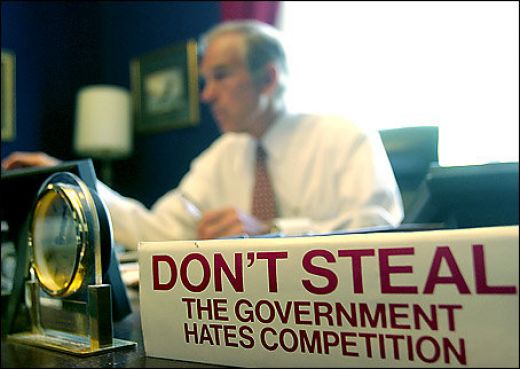
[From Out of Step: The Autobiography of an Individualist, by Frank Chodorov; The Devin-Adair Company, New York, 1962, pp. 216?239.]
THE Encyclopaedia Britannica defines taxation as "that part of the revenues of a state which is obtained by the compulsory dues and charges upon its subjects." That is about as concise and accurate as a definition can be; it leaves no room for argument as to what taxation is. In that statement of fact the word "compulsory" looms large, simply because of its ethical content. The quick reaction is to question the "right" of the State to this use of power. What sanction, in morals, does the State adduce for the taking of property? Is its exercise of sovereignty sufficient unto itself?
On this question of morality there are two positions, and never the twain will meet. Those who hold that political institutions stem from "the nature of man," thus enjoying vicarious divinity, or those who pronounce the State the keystone of social integrations, can find no quarrel with taxation per se; the State's taking of property is justified by its being or its beneficial office. On the other hand, those who hold to the primacy of the individual, whose very existence is his claim to inalienable rights, lean to the position that in the compulsory collection of dues and charges the State is merely exercising power, without regard to morals.
The present inquiry into taxation begins with the second of these positions. It is as biased as would be an inquiry starting with the similarly unprovable proposition that the State is either a natural or a socially necessary institution. Complete objectivity is precluded when an ethical postulate is the major premise of an argument and a discussion of the nature of taxation cannot exclude values.
If we assume that the individual has an indisputable right to life, we must concede that he has a similar right to the enjoyment of the products of his labor. This we call a property right. The absolute right to property follows from the original right to life because one without the other is meaningless; the means to life must be identified with life itself. If the State has a prior right to the products of one's labor, his right to existence is qualified. Aside from the fact that no such prior right can be established, except by declaring the State the author of all rights, our inclination (as shown in the effort to avoid paying taxes) is to reject this concept of priority. Our instinct is against it. We object to the taking of our property by organized society just as we do when a single unit of society commits the act. In the latter case we unhesitatingly call the act robbery, a malum in se. It is not the law which in the first instance defines robbery, it is an ethical principle, and this the law may violate but not supersede. If by the necessity of living we acquiesce to the force of law, if by long custom we lose sight of the immorality, has the principle been obliterated? Robbery is robbery, and no amount of words can make it anything else.
We look at the results of taxation, the symptoms, to see whether and how the principle of private property is violated. For further evidence, we examine its technique, and just as we suspect the intent of robbery in the possession of effective tools, so we find in the technique of taxation a telltale story. The burden of this intransigent critique of taxation, then, will be to prove the immorality of it by its consequences and its methods.
[...]
Full article: Taxation is Robbery, by Frank Chodorov
No comments:
Post a Comment